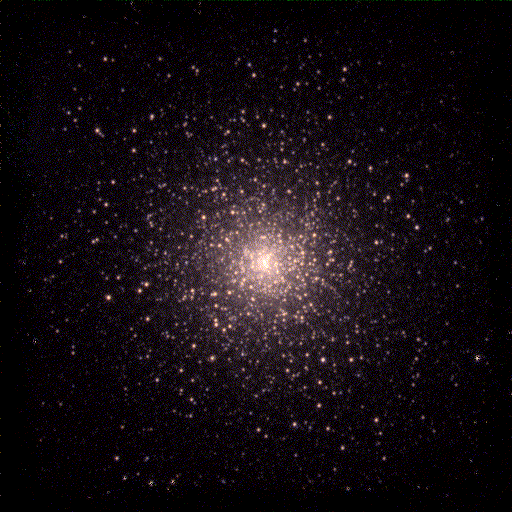 GEORGES LENTZ - composer / sound artist
GEORGES LENTZ - composer / sound artist
 GEORGES LENTZ - composer / sound artist
GEORGES LENTZ - composer / sound artist
|
Home Listen Biography Works Universal Edition Discography Advice Caeli enarrant III Mysterium Alkere Monh Ingwe Jerusalem String Quartet(s) Cobar Sound Chapel Violin Concerto Reviews Texts Photos |
About '...to beam in distant heavens...' - Violin Concerto
from 'Mysterium' ("Caeli enarrant..." VII) for solo violin and orchestra (2018-2023) When I was first approached by Arabella Steinbacher in 2018 about writing a new violin concerto for her, my immediate thought was of all the great masterpieces in the repertoire, and I felt there was no way I could add anything to all that incredible music. A few weeks went by and, still feeling honoured of course about having been asked by such an amazing high profile soloist, I started internalising her phenomenally beautiful sound and the incredible grace of her playing, and I thought - Arabella plays like an angel. This image led me to other stereotypical angel associations - quicksilver nimbleness, weightlessness, and above all light. I started making a few initial sketches with those thoughts in mind. It didn't take long after that for the ideas to come rushing in, but alas also for the angelic light in my imagination to be tainted by a much darker light. Switching on the nightly world news took care of that - not much light, not many angels to be seen out there, in the real world. Or perhaps only Lucifer (literally the 'bringer of light'), that rebel fallen angel, that Satan wanting to play God. My thoughts strayed to the image of the devil as fiddler. I was haunted by this dual nature of angels, capable of both goodness and evil, of reason and of madness - just like us humans, really. Many strange thoughts go through my head when I compose, and they don't always make sense or add up. I will therefore simply give a few disparate hints at what made me decide in the end to attempt a violin concerto after all. The memory of sitting alone with my own violin in the middle of the Outback at night, improvising and trying some ideas for a number of my works over the years, was top of my mind throughout the writing of the new work. The focus on that one lonely violin under the vast starry night sky became important to me, as did the idea of writing a piece not just for but 'about' the violin, the spatialisation and dialogue with other violins, the play with the instrument's open strings (an obvious nod to Alban Berg’s great violin concerto 'To the memory of an Angel'), even the embrace of first-generation fake (and not very in-tune!) electronic keyboard violin sounds dialoguing with Arabella’s precious Stradivarius - these all seemed to open up new possibilities, as did the inclusion of another, not so angelic string instrument - the electric guitar. I found these sound worlds resonating with my reading of "Jerusalem", that last, vast poem by the great English poet and artist William Blake (1757-1827), with its wild, mystical, visionary, psychedelic worlds of angels and monsters in an apocalyptic end-time setting. The words "...to beam in distant heavens..." from that epic poem seemed to capture the spiritual yearning and journey I was trying to express. The idea of existential fragility and solitude is never far from my mind when I compose. Sitting with my violin in the Outback (itself an ecologically fragile environment), I remember feeling an overwhelming sadness for the seemingly unstoppable destruction of the precious planet that sustains us - through war (yet again!), greed and our mindless laziness. One night out there, I found myself imagining our grandchildren in a hundred years' time looking back wistfully at our world today, and I imagined them saying - they actually still had a beautiful, liveable planet back then. The musical result is one particularly melancholy section which I called "An Elegy for our Grandchildren's Planet". And I started glimpsing another, much darker meaning in the work's title - the "distant heavens" Blake talks about might not in fact be far away at all. From the viewpoint of those grandchildren in the year 2100, they might be our world right now, yet a world utterly distant and unattainable to them if we keep going the way we are. On a purely musical level, for the first time ever I wanted to write a "real concerto", a piece for a soloist of Arabella Steinbacher's calibre to shine, a work with both great lyricism and breakneck virtuosity. For the first time, I also wanted to write a real concerto ending. And the last pages of the score may well be heard as just that - a good old throw-away finale. To me personally however, the ending is much more equivocal. Sequences of short repeated notes suggest machine-like digital code, a breakdown of any humanity the work may have contained. Is this the devil fiddler throwing away all pretence at angelic grace and egging us humans on into one final frantic race to the abyss? Or is it on the contrary our own desperate scrambling in the opposite direction, in an attempt to escape certain existential doom? In this context, is the final blow "the end of it all", or a brand-new beginning? These and other features of the work I do not wish to explain all too specifically - much better to let listeners make up their own minds as to what they might mean.
G. L. 2023
|